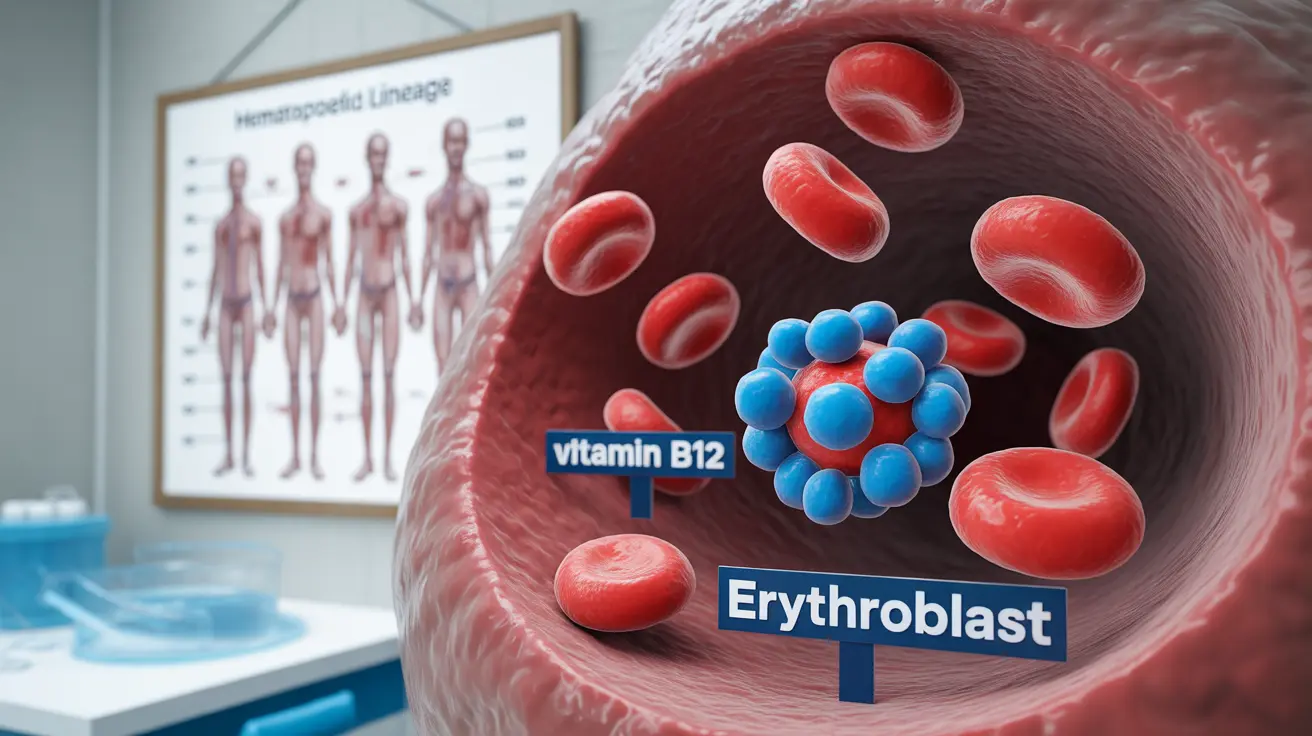Vitamin B12 stands as a crucial nutrient that plays multiple vital roles in maintaining optimal health and bodily functions. This water-soluble vitamin, also known as cobalamin, is essential for various biological processes, from DNA synthesis to neurological function. Understanding its benefits and ensuring adequate intake can significantly impact your overall well-being.
In this comprehensive guide, we'll explore the fundamental benefits of vitamin B12, its importance for various bodily functions, and how to ensure you're getting enough of this essential nutrient.
Key Benefits of Vitamin B12 for Overall Health
Vitamin B12 serves several critical functions in maintaining optimal health. It supports the formation of red blood cells, helps maintain proper nervous system function, and aids in DNA synthesis. The vitamin also plays a crucial role in energy production, helping convert food into glucose that the body can use for fuel.
Additionally, vitamin B12 helps regulate homocysteine levels in the blood, which is important for cardiovascular health. High homocysteine levels have been linked to an increased risk of heart disease and stroke.
The Role of Vitamin B12 in Blood Health
One of the most significant functions of vitamin B12 is its role in red blood cell formation. The vitamin helps produce healthy red blood cells that are properly shaped and functioning. Without adequate B12, the body may produce larger, irregularly shaped red blood cells that cannot effectively carry oxygen throughout the body.
This condition, known as megaloblastic anemia, can lead to fatigue, weakness, and shortness of breath. Maintaining proper B12 levels is essential for preventing this type of anemia and ensuring optimal oxygen delivery to all body tissues.
Pregnancy and Vitamin B12: Critical Connections
During pregnancy, vitamin B12 takes on additional importance. The nutrient is crucial for proper fetal development, particularly in the early stages of pregnancy. Adequate B12 levels help prevent neural tube defects and support the developing baby's nervous system.
Pregnant women need increased amounts of vitamin B12 to support both their own health and their developing baby. This is particularly important for vegetarian or vegan mothers who may need to pay special attention to their B12 intake through supplementation or fortified foods.
Sources of Vitamin B12
Animal-Based Sources
- Beef and liver
- Fish and shellfish
- Eggs
- Dairy products
- Poultry
Plant-Based and Fortified Options
- Fortified breakfast cereals
- Nutritional yeast
- Plant-based milk alternatives (fortified)
- B12 supplements
Diagnosing and Treating B12 Deficiency
Vitamin B12 deficiency can be diagnosed through blood tests that measure B12 levels and complete blood count. Common symptoms of deficiency include fatigue, weakness, memory problems, and tingling in the hands and feet.
Treatment typically involves either oral supplements or B12 injections, depending on the severity of the deficiency and its underlying cause. Regular monitoring and appropriate supplementation can help maintain optimal B12 levels.
Frequently Asked Questions
- What are the main health benefits of vitamin B12 for the body?
Vitamin B12 supports red blood cell formation, maintains nervous system health, aids in DNA synthesis, helps produce energy from food, and supports cardiovascular health by regulating homocysteine levels.
- How does vitamin B12 deficiency affect red blood cells and cause anemia?
B12 deficiency can lead to megaloblastic anemia, where the body produces larger, irregularly shaped red blood cells that cannot effectively transport oxygen. This results in fatigue, weakness, and shortness of breath.
- Why is vitamin B12 important during pregnancy and how does it prevent birth defects?
Vitamin B12 is crucial during pregnancy for proper fetal development, particularly in preventing neural tube defects and supporting the baby's developing nervous system. It also helps in proper cell division and DNA synthesis during fetal development.
- What foods and supplements provide good sources of vitamin B12?
Good sources include animal products like meat, fish, eggs, and dairy, as well as fortified cereals and plant-based milk alternatives. Supplements are available in oral form or as injections for those with absorption issues.
- How is vitamin B12 deficiency diagnosed and treated effectively?
B12 deficiency is diagnosed through blood tests measuring B12 levels and complete blood count. Treatment typically involves oral supplements or B12 injections, depending on the severity and cause of the deficiency. Regular monitoring ensures treatment effectiveness.




